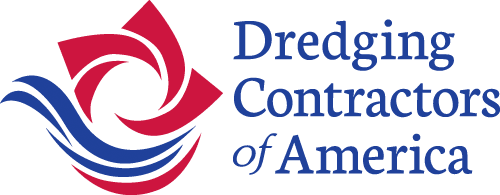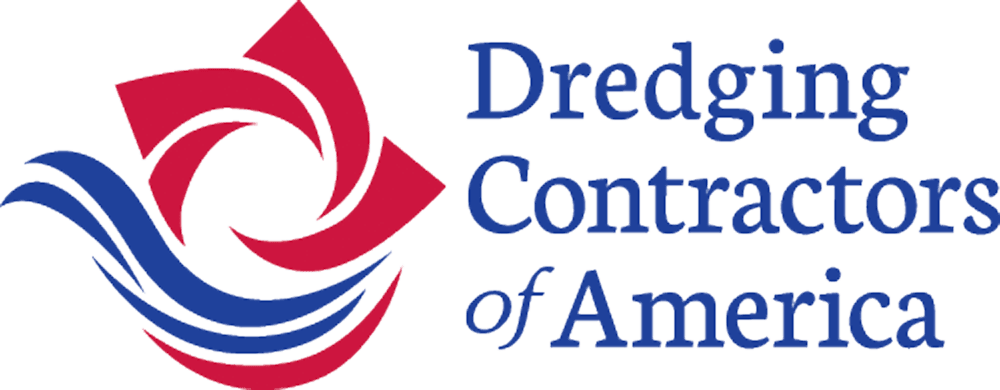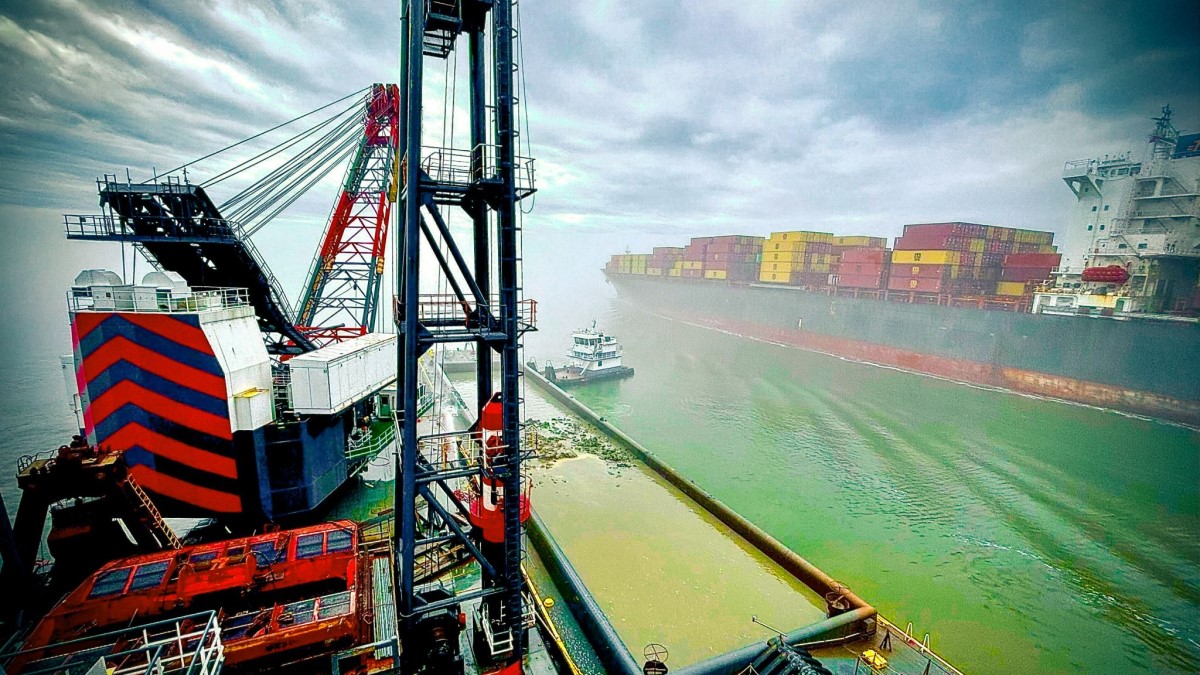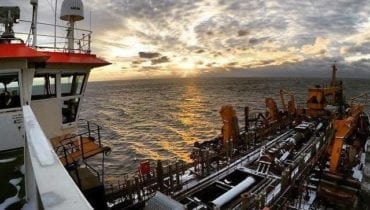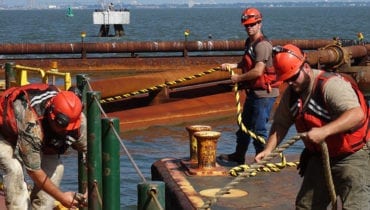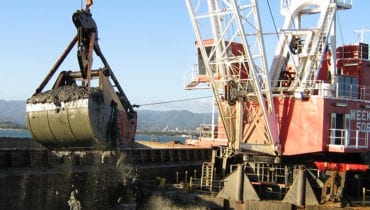President Biden released his proposed 2025 Budget on March 11, 2024 (not to be confused with the FY 2024 appropriations highlighted below). The federal government’s fiscal begins on October 1 and ends on September 30 of the next calendar year. Thus, we are nearly half-way through FY 2024. The government has been operating in FY2024 on a series of continuing resolutions.
On Sunday March 3, 2024, a bipartisan package of appropriations bills was agreed to by the U.S. House of Representatives and U.S. Senate. The package is known as the Consolidated Appropriations Act, 2024. This package includes the energy and water development and related agencies appropriations. On Wednesday, March 6th the U.S. House of Representatives voted 339-85 in favor; Friday, March 8th, the U.S. Senate voted 75-22 in favor; and on Saturday, March 9th, President Biden signed the Act into law.
“We want to thank President Biden and Speaker of the House Mike Johnson (LA) and leader Hakeem Jeffries (NY), and Senate leaders Chuck Schumer (NY) and Mitch McConnell (KY) for their leadership in shepherding the Bills through Congress and to final enactment,”
said William P. Doyle, Chief Executive officer of the Dredging Contractors of America.
“Energy and water appropriations are critically important to help protect America’s coastlines, rivers and waterways from harsh weather conditions and to help maintain and build economic prosperity and efficiencies in our country’s network of shipping ports.”
Mr. Doyle concluded,
“We understand that reaching a strong bipartisan deal on spending legislation takes time and an enormous amount of effort. We thank all the negotiators involved and the leadership of House Appropriations Committee Chairwoman Kay Granger (TX) and Ranking Member Rosa DeLauro (CT) and U.S. Senator Patty Murray (WA), Chair of the Senate Appropriations Committee and Vice Chair Susan Collins (ME) their work on the bicameral, bipartisan package of the first six fiscal year 2024 appropriations bills.”
The new law directs the U.S. Army Corps of Engineers to provide a workplan to the congressional committees within 60 days. The Corps is directed to propose a single group of new starts as a part of the work plan. The Corps may not change or substitute the new starts selected once the work plan has been provided to the committees. The new law reminds the executive branch that only new starts with a willing and able non-federal sponsor should be included in the work plan.
Here are some of the key takeaways:
- The bill provides $8.7 Billion in total funding for the Corps of Engineers.
- Operation and Maintenance, $5.6 Billion ($422 Million above the FY 2023 level);
- $456 Million for construction projects on the inland waterways system, fully funding ongoing work for FY 2024;
- $2.77 Billion for the Harbor Maintenance Trust Fund to improve navigation through dredging ports and maintaining critical waterways;
- Nearly $2.2 Billion for flood and storm damage reduction activities;
- Construction, $1.8 Billion;
- $368 Million for Mississippi River and Tributaries.
- Investigations, $132 Million;
- Nearly $440 Million to fund a new initiative for dam and levee infrastructure;
- $18 Million for Beneficial Use of Dredged Material (in construction fund)
By the numbers, some key projects around the country (Construction, including Mississippi Rivers and Tributaries):
- Arkansas – $103M+ for the McClellan -Kerr Arkansas River Navigation System, Three Rivers; $43M Channel Improvement (touches states IL, KY, LA, MS, MO and TN).
- Illinois – $175M for Upper Mississippi River Illinois Waterway System and River Restoration (touches states IA, MN, MO & WI).
- Louisiana – $18M for Calcasieu River and Pass; Approx $5M for Louisiana Coastal Area Ecosystem Restoration; $28M for Morganza to the Gulf.
- Maryland – $6M for Poplar Island; Approx. $6.5M for Chesapeake Bay Oyster Recovery (touches state of VA).
- Michigan – $258M for Sault Sainte Marie (New Soo Locks).
- Mississippi – $21M for Mississippi River Levees (touches states AR, IL, KY, LA, MO and TN); $43M for Yazoo Basin (Headwaters, Upper and Backwaters).
- South Carolina – $25M Charleston Harbor.
- Texas – $100M Sabine-Neches Waterway; $25M Houston Ship Channel.
Included in the funding pot for Operation & Maintenance (O&M):
- Alabama – $44M Mobile Harbor; $6.4M Gulf Intracoastal Waterway; $54M Tennessee -Tombigbee Waterway (touches MS).
- Alaska – $18M for harbors (including Anchorage, Dillingham, Ketchikan, Homer, Ninilchik, Nome).
- Arkansas – $84.4M for McClellan -Kerr Arkansas River Navigation System.
- California – $8.6M for Channel Islands Harbor; $6.5M for Crescent City Harbor; $7M for Dana Point Harbor; $6.7M for Humboldt Harbor and Bay; $14.5M for Morro Bay Harbor; $25M for Oakland Bay Harbor; $10M for Redondo Beach (King Harbor); $6.7M for Redwood City Harbor; $10.5M for Richmond Harbor; $9M for San Francisco Bay; $11M Port of Stckton; $6.6M for Suisan Bay Channel; $8.4M for Ventura Harbor.
- Delaware – $24M for Intracoastal Waterway Delaware to Chesapeake Bay; $15M for Wilmington Harbor.
- Florida – $9.6M for Canaveral Harbor; $13M Jacksonville Harbor; $12.7M Tampa Harbor; $4M for Intracoastal Waterway Jax to Miami; $5M for Palm Beach Harbor;
- Georgia – $26M Brunswick Harbor; $45M for Savannah Harbor; $4M for Atlantic Intracoastal Waterway.
- Illinois – $16.6M for Chicago Harbor; $53M for Illinois Waterway (MVR, MVS); $77M for Miss River between Missouri River and Minneapolis MVR portion and $30M for MVS portion.
- Indiana – $9.5M for Indiana Harbor.
- Kentucky – $10M Ohio River open channel work.
- Louisiana – $62.5M for Atchafalaya River and Bayous; $36.8M for Calcasieu River and Pass; $19M for Gulf Intracoastal Waterway; $5.8M for Houma Navigation Channel; $52.3M for J. Bennett Johnston Waterway; $185.3M for Miss River, Baton Rouge to Gulf of Mexico.
- Maryland – $45M for Baltimore Harbor and Channels (incl. drift removal).
- Massachusetts – $35M Cape Cod Canal.
- Michigan – $188M for MI harbors, rivers and waterways.
- Minnesota – $11.3M for Duluth-Superior Harbor; $93M for Miss River between Missouri River and Minneapolis (MVP).
- Mississippi – $6.5M for Gulfport Harbor; $12M for Pascagoula Harbor.
- Missouri – $30M for Miss River between Ohio and Missouri Rivers.
- New Hampshire – $6.2M for Hampton Harbor.
- New Jersey – $58M for Delaware River – Philadelphia to the Sea (touches states NY, PA, DE); $2.8M for NJ Intracoastal Waterway.
- New York – $54M for NY and NJ Harbor; $11.7M for NY and NJ Channel; $13.6M for NY and NJ Harbor Drift Removal; $7.4M for NY Harbor; $10M for Oswego Harbor; $7.5M for Barcelona Harbor; $6M for Saugerties Harbor.
- North Carolina – $26M for Wilmington Harbor; $18.4M for Morehead City Harbor; $6.4M for Atlantic Intracoastal Waterway.
- Ohio – $12M for Cleveland Harbor; $16M for Vermillion Harbor; $6.7M for Fairport Harbor; $4M for Conneaut Harbor; $2.9M for Toledo Harbor; $3.2M for Lorain Harbor; $1.2M for Sandusky Harbor.
- Oregon – $22.8M for Columbia River at Mouth (OR and WA); $9M for Coos Bay; $4.8M Yaquina Bay and Harbor.
- Pennsylvania – $18M Delaware River, Philadelphia to Trenton, NJ; $100M for Ohio River Locks and Dams (touches states OH and WV); $50M for Monongahela River (touches WV).
- South Carolina – $19.5M for Charleston Harbor; $8.5M for Atlantic Intracoastal Waterway; $4.6M for Cooper River, Chas. Harbor; $6.5M for Georgetown Harbor.
- Tennessee – $31M for Tennessee River.
- Texas – $33.5 M for Houston Ship Channel; $35M for Gulf Intracoastal Waterway; $11M for Sabine-Neches Waterway; $9.6M for Corpus Christi Channel; $8.8 for Galveston Harbor; $8.2M for Freeport Harbor; $6.7 for Buffalo Bayou and Tributaries; $4.8 for Brazos Island Harbor; $3.9M for Matagorda Ship Channel.
- Virgina – $47.5M for Norfolk Harbor; $12.2M for James River Channel; $3.5M for AIWA Albemarle and Chesapeake Canal; $3.6M Hampton Roads Drift Removal.
- Washington – $73.1M for Columbia and Lower Willamette Rivers Below Vancouver, WA and Portland, Oregon; $16M for Lake Washington Ship Channel.
- Wisconsin – $12M for Manitowoc Harbor; $3.7M for Green Bay Harbor; $1.8M for Milwaukee Harbor.
In addition, noteworthy in the Energy and Water Bill is the table of Community Project Funding / Congressionally Directed spending. This table itemizes where legislators secured additional funding for important projects. Some examples include:
- Upper Mississippi River – Illinois Waterway System, $120M, (Illinois, Iowa, Minnesota, Missouri, Wisconsin) (Construction)
- Sabine-Neches Waterway, Texas, $100M (Construction)
- McClellan – Kerr Arkansas River Navigation System, Arkansas, $103M (Construction)
- Charleston Harbor, South Carolina, $25M (Construction)
- Houston Ship Channel, Texas, $24.8M (Construction)
- New Soo Lock, Michigan, $22.4M (Construction)
- Brunswick Harbor Modification, Georgia, $11.3M (Construction)
- NY/NJ Harbor Deepening Improvements, New York and New Jersey, $7M (Investigations)
- Norfolk Harbor and Channels, Virginia, $4M (Investigations)
- St. George Harbor Improvement, Alaksa, $3.5M (Investigations)
- Seagirt Loop Deepening – Port Baltimore, Maryland, $2M (Investigations)
- Yazoo Basins, Mississippi, $43.7M (O&M)
- Delaware River – Philadelphia to the Sea, $10M (O&M)
- Mobile Harbor, Alabama, $11.2M (O&M)
- Texas City Ship Channel, Texas, $9.6M (O&M)
- Redwood City Harbor, California, $3.7M (O&M)

